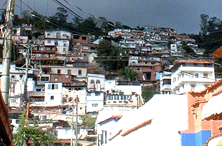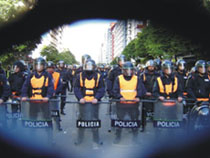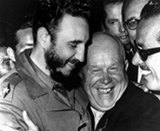
The World Social Forum and the Streets in Caracas, Venezuela
Caracas, Venezuela is a city made up of skyscrapers, colonial architecture and, wherever possible, the do-it-yourself tile and cement houses of poor neighborhoods, known as barrios. Though the local mainstream media ignored the coming of the 2006 World Social Forum, Caracans themselves found out quickly as they watched a parade of activists from across the globe pour into their city waving banners, setting up tents and discussing the state of the world on park benches and hotel lobbies.




